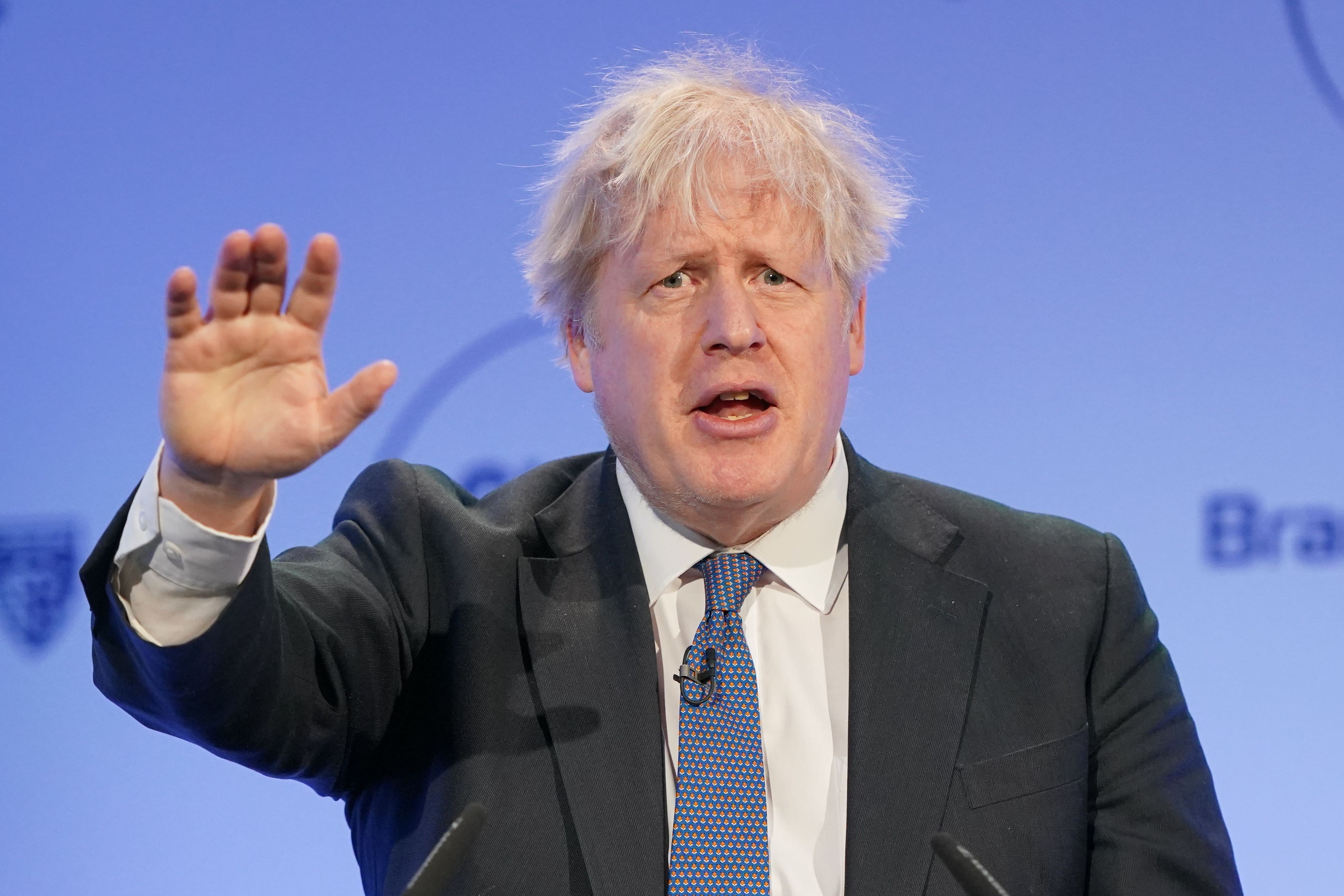Boris Johnson tells Rishi Sunak to override court on Rwanda deportation scheme
PM’s predecessor urges him to change the law after court of appeal shoots down policy

Your support helps us to tell the story
From reproductive rights to climate change to Big Tech, The Independent is on the ground when the story is developing. Whether it's investigating the financials of Elon Musk's pro-Trump PAC or producing our latest documentary, 'The A Word', which shines a light on the American women fighting for reproductive rights, we know how important it is to parse out the facts from the messaging.
At such a critical moment in US history, we need reporters on the ground. Your donation allows us to keep sending journalists to speak to both sides of the story.
The Independent is trusted by Americans across the entire political spectrum. And unlike many other quality news outlets, we choose not to lock Americans out of our reporting and analysis with paywalls. We believe quality journalism should be available to everyone, paid for by those who can afford it.
Your support makes all the difference.Boris Johnson has urged Rishi Sunak to change the law to make the government's policy of sending asylum seekers to Rwanda legal – after it was shot down by judges.
The Court of Appeal on Thursday ruled that the policy was unlawful – rejecting the idea that Rwanda represented a “safe third country" and preventing the government from sending people there.
But in an article for the Daily Mail newspaperpublished on Friday Mr Johnson said it was not for "judges in London" to determine whether or not Rwanda was safe.
Instead he said the government should change the law to define Rwanda as safe so that the scheme could go ahead.
"When I launched the scheme on April 14 last year, I was explicit that it would take time, and that it would face many legal challenges and reverses. I also said that it might be necessary to take further steps and, if required, to change the law. The time has now come to do this," he said.
The former prime minister, who quit as an MP earlier this month, said he hoped the Supreme Court would find in favour of the scheme, but added:
"We must be realistic. There is now a good chance that the law’s delays will be so severe that no illegal arrivals will be sent to Rwanda this year, and perhaps not even next year. That would be intolerable, and it is time for Parliament to cut the Gordian Knot."
Mr Johnson rejected the solution of "immediately" quoting the European Convention on Human Rights, arguing that it would "take time" and "cause divisions".
But he said the governemnt could use Schedule 3 of the Asylum and Immigration Act 2004 "to ask Parliament to deem Rwanda a safe country" and thus legalise the removals.
The scheme was announced under Home Secretary Priti Patel in April last year, in the dying days of Mr Johnson's premiership.
But no deportation flights to Rwanda have yet gone ahead amid legal barriers and challenges to the scheme.
The government says the scheme will act as a deterrent to crossing the channel, but those opposed say Rwanda has a poor human rights record and that sending people there puts them in danger.
In the view of many critics the policy also amounts to a breach of Britain's obligations under the UN refugee convention. The government has been unable to identify safe and legal routes that would be open for most asylum seekers to come to the UK.
Labour has meanwhile criticised the enormous cost of the scheme, which was this week revealed to amount to an estimated £169,000 per person.
In a statement issued on Thursday lunchtime prime minister Mr Sunak confirmed that the government would appeal the scheme in the Supreme Court.
“The policy of this government is very simple, it is this country – and your government – who should decide who comes here, not criminal gangs,” he said in a statement. And I will do whatever is necessary to make that happens.”
Join our commenting forum
Join thought-provoking conversations, follow other Independent readers and see their replies
Comments